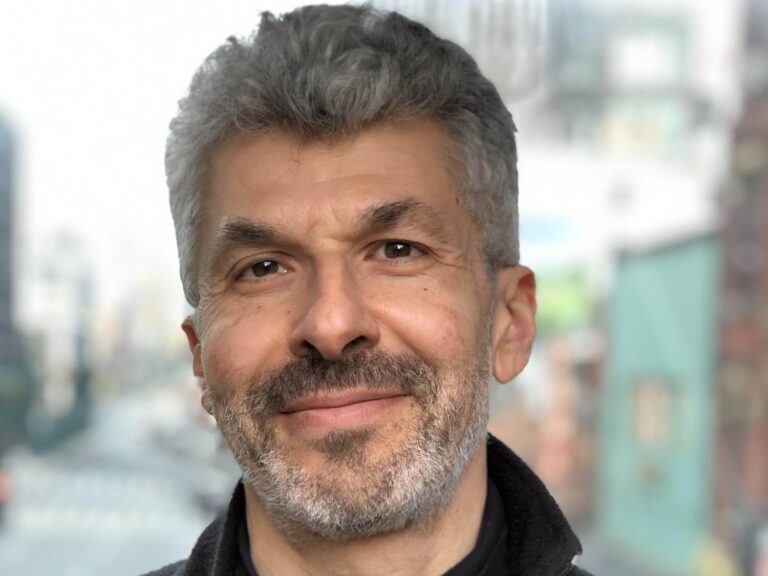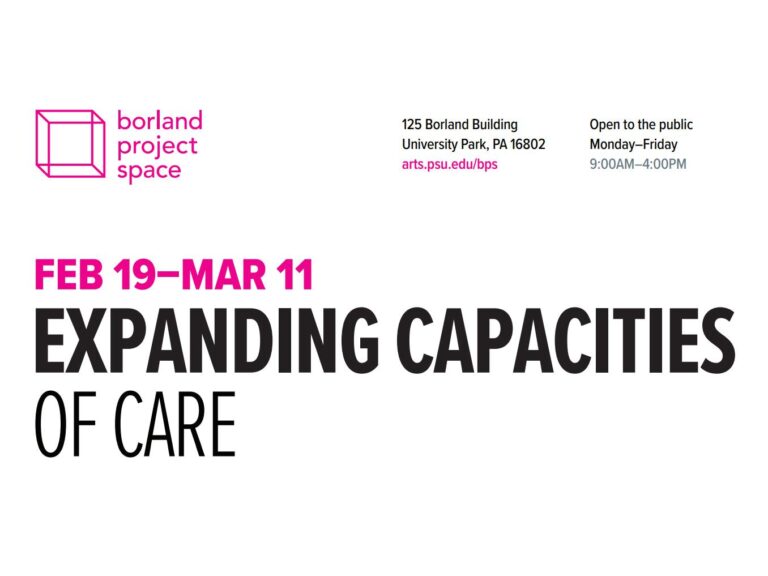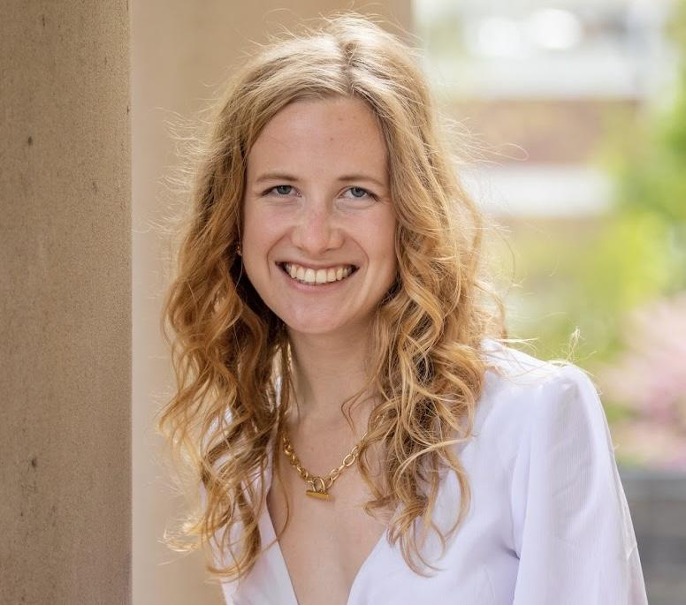UNIVERSITY PARK, Pa. — “Expanding Capacities of Care,” a nine-session series that takes a cross-disciplinary approach to exploring wellness and the complex role of caregivers, will open on Feb. 19 in the College of Arts and Architecture’s Borland Project Space.
The free series is open to the public and runs through March 11. Funded in part by the Huck Institutes of the Life Sciences, the series will offer diverse programing that includes animated film screenings, literature discussion, lectures, writing exercises and hands-on creating.
Feb. 19, 1-2 p.m. “Animating Stories: art/science/wellness collaborations rooted in Story Circles and mental wellbeing”
Experience three animated documentary short films hosted by the filmmakers, Bill Doan, director of the Arts and Design Research Incubator (ADRI), professor of theatre, artist-in-residence in the College of Nursing and 2019-20 Penn State Laureate; and Cynthia White, ADRI filmmaker and adjunct research associate.
Produced by ADRI in the College of Arts and Architecture, the films have been screened at more than 20 film festivals worldwide and won several awards of distinction. Visit inhaleexhaledraw.com for more information about the films.
Feb. 21, 11:30 a.m.-1:30 p.m. “Exploring Professional Caregiver Ethics ‘To Infinity and Beyond’”
Join Michele Mekel, associate director of Penn State’s Bioethics Program, for an interactive session that will explore professional caregiver ethics through the lens of freely available short speculative and science fiction literary works by a mix of authors from various perspectives.
Feb. 22, Noon-1 p.m. “Processing: Examining the Multiple Realities of Health Crises via Matters of Care”
Brandi Lewis, dual doctoral candidate in art education and women's, gender and sexuality studies, will explore the questions of “How does medical technology mediate understanding and experience of a health emergency or disabling event?” and “What are the impacts of biometric data and care-providing hardware/software that create distance from the embodied patient experience?”
This talk examines care ethics during a crisis by noticing the mundane aspects of a hospital room — paying attention to small, annoying or quiet things that affect a person's healing — and their impacts on patient care.
Feb. 23, 1-3 p.m. “Unmasking Professional Identity, Moral Injury and the Stressors of Caregiving”
Mark Stephens, associate dean for medical education in the Penn State College of Medicine at University Park, will host an immersive and transformative session that invites participants to engage in the ancient art of mask-making, a powerful tool for self-expression and reflection, as an exercise to explore professional identity, moral injury and the stressors of caregiving.
Feb. 26, 3:30-4:30 p.m. “Wayfinding: Arts-based Autoethnography for Healing and Self-Recovery"
Artist, educator and emerging scholar Glynnis Reed-Conway, a doctoral candidate in art education and women's, gender and sexuality studies, will share artworks and other images in a presentation on "Wayfinding," as seen in her arts-based, autoethnographic research for her doctoral dissertation.
Feb. 27, Noon-1 p.m. “Weaving Quiet Together”
Alongside Marie Huard, doctoral candidate in art education, find quiet in the simple process of moving a needle over and under, over and under with soft and textured yarns as you create a small hand weaving in the company of friends. All materials and instruction provided.
Engaging in patterns of movement has been shown to help makers enter a state of mind similar to that of meditative practice. Beginning and experienced weavers will all enjoy a sense of creative well-being.
Feb. 29, Noon-1 p.m. “Kaleidoscope PA: A Multi-Disciplinary Entrepreneurial Journey in Art and Wellness”
During an interactive session, Sarah Zappe, assistant dean for teaching and learning and director of the Leonhard Center for Enhancement of Engineering Education in the College of Engineering, will share details of her journey in art and wellness entrepreneurship.
In summer 2023, Zappe launched Kaleidoscope PA, LLC, which she describes as an art wellness community. She teaches watercolor and other art approaches in various locations in Centre County.
As an educational psychologist who has worked in engineering education for almost 15 years, she stumbled upon watercolor during the COVID-19 pandemic and began to realize the wellness potential inherent in the creative process. Students, faculty and staff interested in how to incorporate wellness with art and how to launch an art-related LLC are encouraged to attend.
March 11, Noon-1 p.m. “Building Capacities of Care Across the Disciplines: Collaboration in Education”
Aaron Knochel, associate professor of art education; Michele Mekel, associate director of Penn State’s Bioethics Program; and Christa Wilk, medical student, will discuss revision of an interdomain general education course through interdisciplinary collaboration.
March 11, 3:30-5:30 p.m. “Poetically Processing the Care Experience from Both Sides of the Patient-Provider Relationship”
Michele Mekel, associate director of Penn State’s Bioethics Program, will engage poetry as a creative writing genre that enables reflective processing of care experiences, which can help medical professionals in managing moral injury and burnout.
Workshop participants will be exposed to Ekphrasis, the use of detailed description of a work of visual art as a literary device, and other prompt-based approaches. Following the writing exercise, attendees will be invited to share their care-based poetic reflections, or another care-based poetic work they have written.
Bring a pen, pencil and paper, or a charged electronic device, for your word creations.



